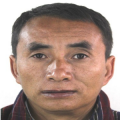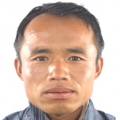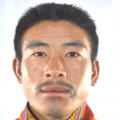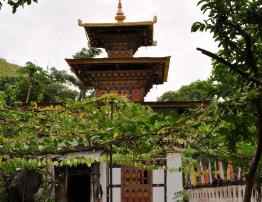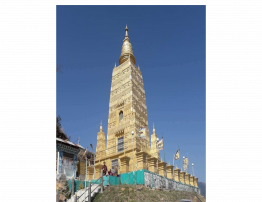Brief background of Toedtsho Gewog
Toedtsho Gewog is one of the nine gewogs (administrative divisions) located within the Trashiyangtse district of eastern Bhutan. Situated amidst the stunning landscapes of the Himalayas, Toedtsho Gewog encompasses a mix of rugged mountains, verdant valleys, and cascading rivers, offering residents and visitors alike a glimpse into the natural splendor of Bhutan.
The gewog is named after Toedtsho, a prominent lake located within its boundaries, which holds cultural and spiritual significance for the local communities. Toedtsho Lake is believed to be inhabited by protective deities, and pilgrims often visit the site to offer prayers and seek blessings.
Agriculture forms the backbone of the economy in Toedtsho Gewog, with terraced fields carved into the hillsides supporting the cultivation of crops such as rice, maize, barley, and potatoes. Livestock farming, including yak herding and dairy production, is also prevalent, providing essential resources for sustenance and income generation.
In addition to agriculture, handicrafts play a vital role in the livelihoods of the residents. Skilled artisans practice traditional crafts such as weaving, bamboo and woodwork, and pottery, preserving centuries-old techniques passed down through generations. These handicrafts not only serve as a source of income but also contribute to the preservation of Bhutanese cultural heritage.
Toedtsho Gewog is also known for its rich biodiversity, with dense forests harboring a variety of flora and fauna. The region is part of the Bumdeling Wildlife Sanctuary, which is home to endangered species such as the black-necked crane, Himalayan monal, and red panda. Conservation efforts aim to protect these ecosystems while promoting sustainable tourism initiatives that allow visitors to experience the natural beauty of the area.
Culturally, Toedtsho Gewog celebrates traditional Bhutanese festivals and rituals, including religious ceremonies and masked dances. These events serve as occasions for communities to come together, reaffirm their cultural identity, and honor their spiritual beliefs.
Despite its remote location, Toedtsho Gewog is connected to neighboring communities and urban centers through a network of roads and trails. The gewog administration works to improve infrastructure and provide essential services such as healthcare, education, and access to clean water, enhancing the quality of life for residents.
|
Indicator |
Statistics |
|
Gewog |
Toetsho |
|
Local Government |
|
|
Total Area (sq.kms) |
49.74553742 |
|
Altitude (masl) |
5325 |
|
Total Number of Village |
23 |
|
Total Number of Chiwog |
6 |
|
Community Centers |
1 |
|
Population Detail |
|
|
Female |
1885 |
|
Male |
1902 |
|
Total Population |
3787 |
|
Numbers of Households |
547 |
|
Numbers of Gungtong |
126 |
|
Agriculture |
|
|
RNE Extension Centers |
1 |
|
Farmers Coorperatives |
0 |
|
Total Forest Coverage (sq.kms) |
45.82 |
|
Education |
|
|
Numbers of ECCD Centers |
2 |
|
Numbers of Primary Schools |
2 |
|
Numbers of Lower Secondary Schools |
1 |
|
Total Number of School |
3 |
|
Electricity Coverage (%) |
100 |
|
Telecommunication |
|
|
Chiwog with Mobile Network |
6 |
|
Chiwog without Mobile Network |
0 |
|
Road Network |
|
|
GC Road (KMS) |
6 |
|
Farm Road (KMS) |
20.65 |
|
Religion and Culture |
|
|
Lhakhangs |
16 |
|
Health Facility |
|
|
Primary Health Centers |
1 |
|
ORCs |
5 |
|
Number of Sub Post |
1 |


